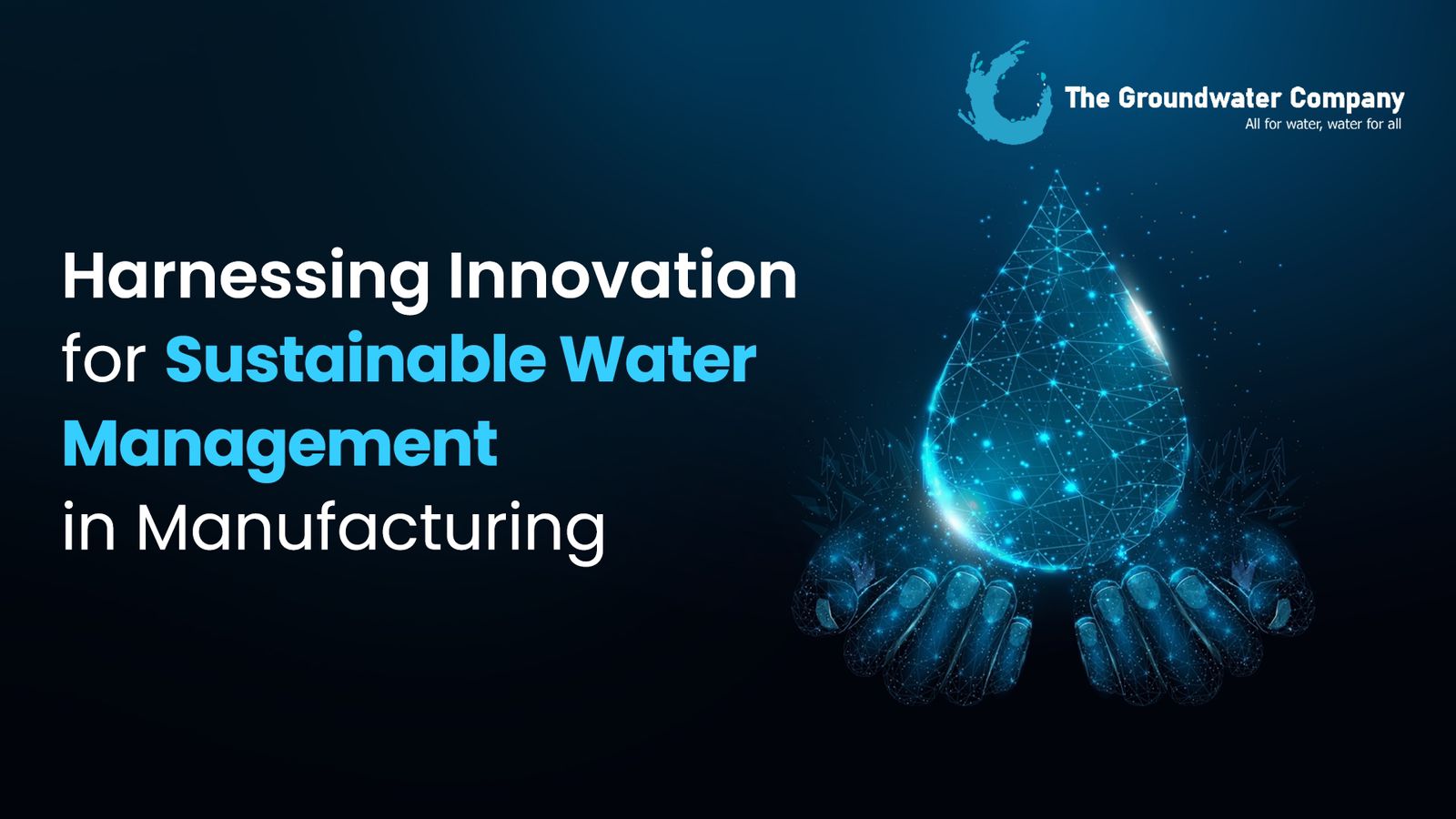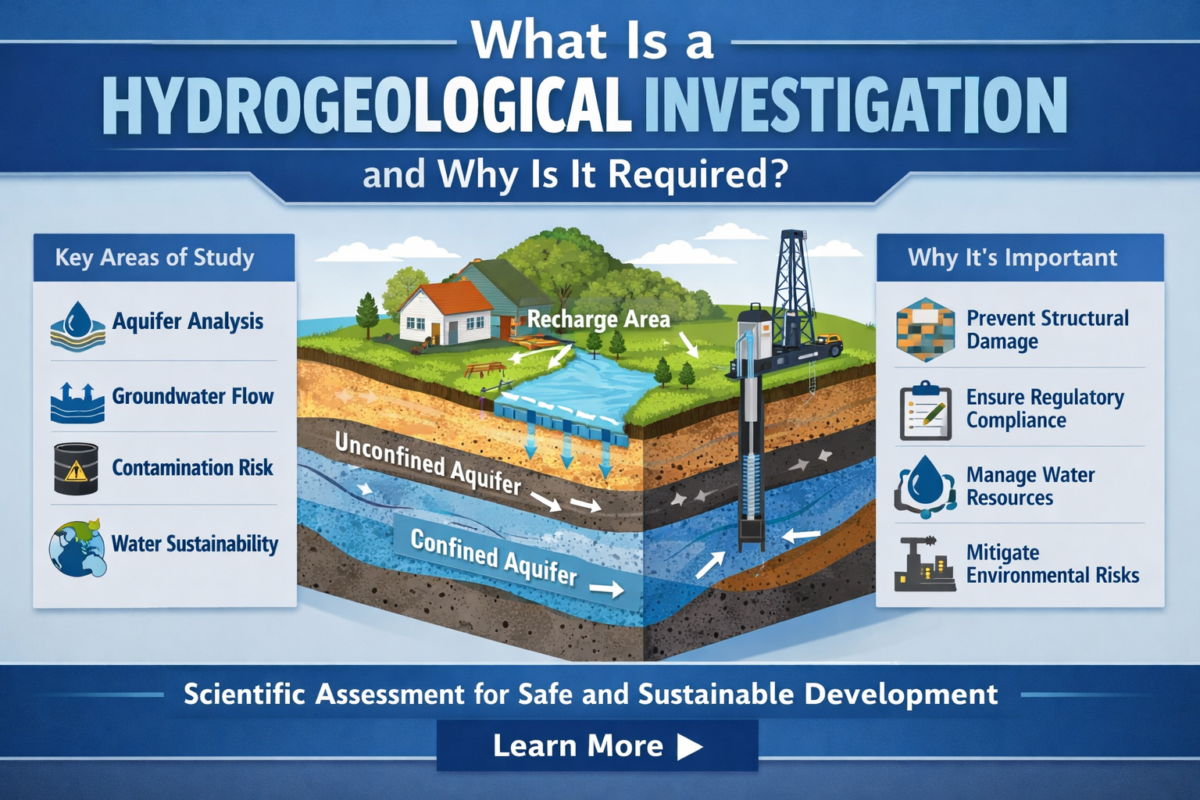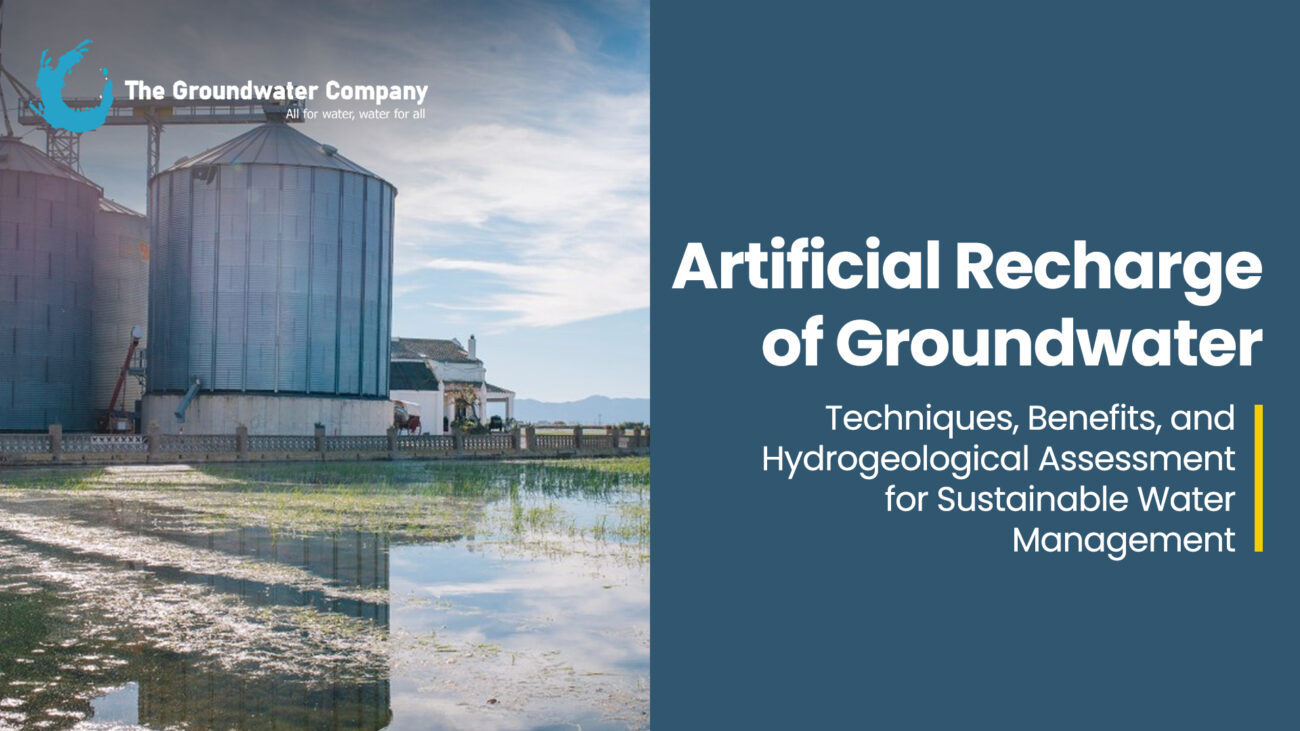Water management in manufacturing is becoming increasingly critical in India, particularly with the depletion of groundwater resources. As one of the largest consumers of water, the industrial sector must adopt sustainable water management practices to ensure long-term water availability. The Ground Water Company is dedicated to promoting innovative solutions for effective groundwater management, ensuring that industries can sustainably manage this precious resource.
The Importance of Sustainable Water Management in Manufacturing
India’s manufacturing sector is heavily dependent on water, with industries such as textiles, chemicals, and food processing requiring significant amounts of it. Groundwater, which meets about 85% of India’s rural drinking water needs and 60% of irrigation requirements, is being overexploited. The reliance on groundwater for industrial use adds further strain, making sustainable water management in manufacturing vital for maintaining balance in water ecosystems and supporting long-term business growth.
Addressing Water Scarcity in Manufacturing
Water scarcity is becoming a significant challenge, especially for manufacturers in water-stressed regions of India. Many of these factories depend on groundwater as their primary source of water. With declining water tables and the risk of wells running dry, industries need to adopt water management innovations to remain operational. Advanced technologies that allow for real-time monitoring, as well as strategies like water recycling and reuse, can help address these concerns.
Solutions for Water Conservation in Manufacturing
Implementing water conservation in manufacturing can significantly reduce reliance on groundwater. Factories can integrate advanced water filtration systems that recycle water for use in production, cooling, and cleaning processes. Studies have shown that through water conservation methods, manufacturers can cut water use by up to 30%, while water recycling and reuse can reduce dependence on fresh groundwater by up to 40%.
Innovations in Water Recycling and Reuse
Water recycling and reuse systems are becoming increasingly popular in Indian manufacturing. These systems help industries treat wastewater and reuse it for non-potable purposes such as cooling, cleaning, and irrigation. The Ground Water Company advocates for the adoption of industrial wastewater treatment systems that not only recycle water but also help in reducing the environmental impact of water discharge.
One example of innovation in this area is rainwater harvesting in manufacturing. Industries can capture and store rainwater, reducing the need for groundwater extraction. In areas with seasonal rainfall, rainwater harvesting can contribute significantly to water sustainability and relieve pressure on local water sources.
The Role of Smart Water Management Systems
Smart technologies, such as IoT in water management, provide manufacturers with tools to track water usage, detect leaks, and optimize water distribution in factories. Smart water management systems can provide real-time data on water consumption and help factories reduce water waste. By integrating these systems, manufacturers can make data-driven decisions to improve water efficiency and cut costs.
Regulatory Compliance and Environmental Impact
With growing concerns about groundwater depletion and water pollution, the government of India has implemented stricter regulations for industrial water use. Manufacturers need to ensure Clean Water Act compliance and adhere to other local regulations that protect water resources. Adopting sustainable practices not only ensures compliance but also helps reduce the environmental impact of water management by limiting water pollution and conserving groundwater.
Economic and Environmental Benefits of Sustainable Water Practices
There are numerous benefits to sustainable water management in manufacturing. From an economic perspective, manufacturers can realize cost savings through water management by reducing water purchase costs and minimizing wastewater treatment expenses. Additionally, the adoption of industrial water filtration technologies helps reduce operational disruptions caused by water shortages.
Environmentally, these practices help maintain groundwater levels, reduce wastewater discharge into local water bodies, and promote the long-term sustainability of industrial operations. By integrating sustainable industrial practices, industries contribute to the overall health of ecosystems and promote responsible resource management.
Circular Economy in Water Management
The concept of a circular economy in water management is gaining traction in the manufacturing sector. This approach focuses on reusing water and minimizing waste throughout the production process. By recycling water and incorporating water treatment solutions for manufacturers, industries can create closed-loop systems that support water conservation efforts and reduce their reliance on groundwater.
Conclusion: Building a Sustainable Future with Groundwater Management
India’s industrial sector must prioritize sustainable water management practices to address the challenges of water scarcity and groundwater depletion. By leveraging water management technologies, manufacturers can optimize their water use, reduce their environmental impact, and lower costs. The Ground Water Company is at the forefront of providing innovative solutions that help industries achieve these goals.
As manufacturers continue to adopt smart technology for water conservation and embrace sustainable practices, they contribute to a future where groundwater resources are preserved for generations to come.











